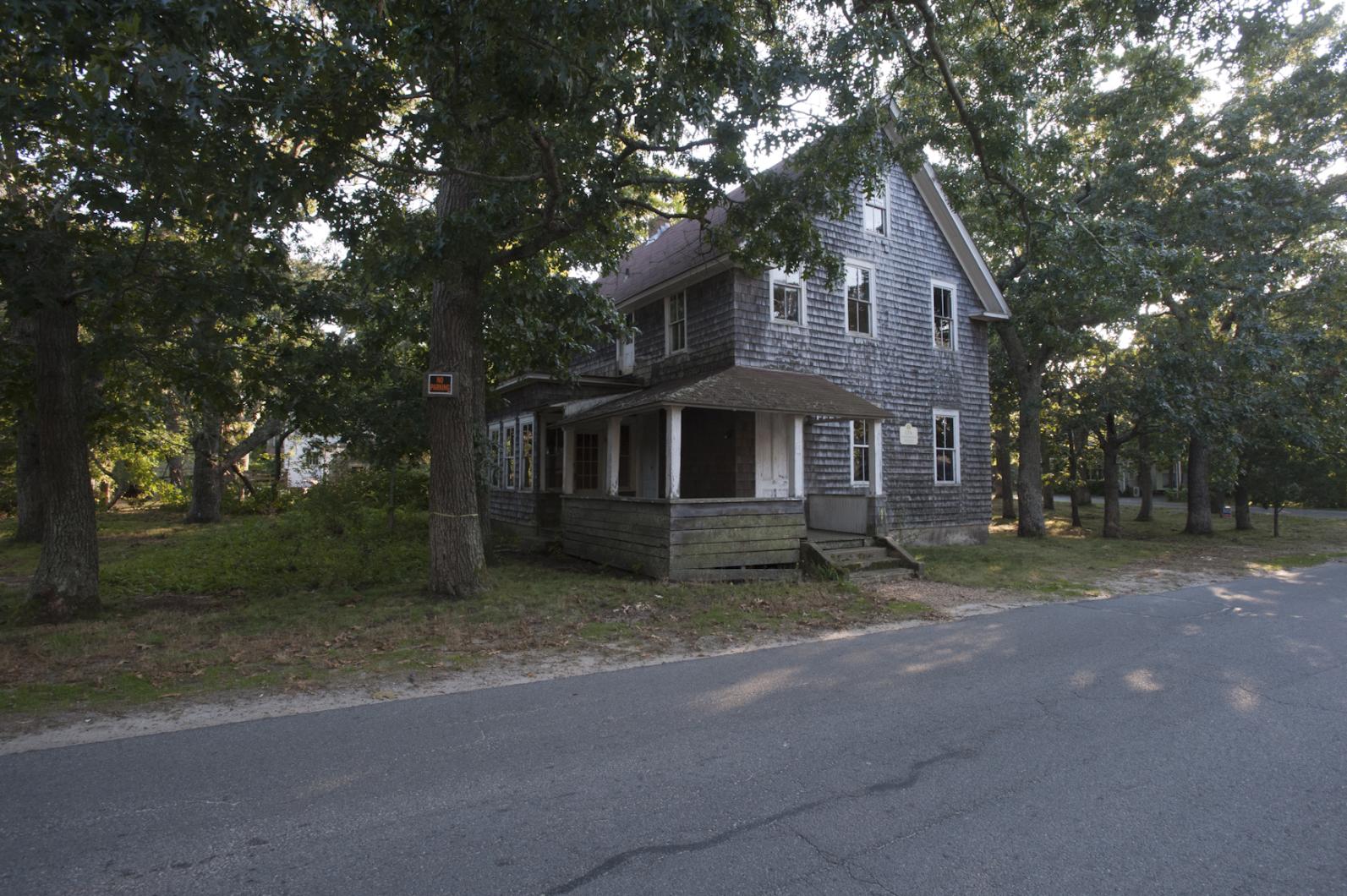The Denniston house was issued a stay of execution this week as Oak Bluffs residents and officials railed at the prospect of losing a part of Island history.
On Wednesday the Oak Bluffs historic commission voted unanimously to designate the Denniston house for preferable preservation, blocking the issuance of a demolition permit for six months. The commission also voted to refer the tear-down plan to the Martha’s Vineyard Commission as a development of regional impact (DRI).
The public hearing saw eloquent appeals on behalf of the building’s preservation, alongside exasperated expressions from Island Affordable Housing Fund executive director T. Ewell Hopkins, who has requested the demolition permit on behalf of potential buyers.
The Masonic avenue house was dedicated as a mission for Portuguese immigrants at the turn of the last century before serving as the Island’s first black church for nearly 40 years under the ministry of the Rev. Oscar E. Denniston. A plan to redevelop the property as a mixed-use-affordable housing complex has failed and the Island Affordable Housing Fund was forced to put the building up for sale this fall.
At the hearing Tuesday Bob Hayden, an Island historian and author of African Americans on Martha’s Vineyard, spoke in favor of the building’s preservation.
“Today the building in which Reverend Denniston conducted his Bradley Memorial Church ministry stands quietly and simply, yet bold and imposing, and majestically symbolic of Reverend Denniston’s magnificence,” he said. “We’re talking about an edifice that impacted the culture and social welfare on Martha’s Vineyard for over 50 years led by two pioneers, one white and one black, both unique personalities, Rev. Oscar E. Denniston and Susan Bradley.”
Mr. Hayden then invoked the Island Plan, which warns:
“The character of our neighborhoods and towns is threatened by the demolition of significant older buildings and construction of new buildings that are oversized, that don’t fit their surroundings and that violate environmental building practices.”
David Wilson, chairman of the Cottage City historic district commission, echoed Mr. Hayden’s remarks and suggested the commission apply to the state to include the Denniston house in the Cottage City historic district. Mr. Wilson also spoke about the structural integrity of the building and said that during a recent visit he found few signs of deterioration.
“The main things that make me proud to be an Oak Bluffs resident and a boy who grew up here are our historic properties,” he said. “Our Victorian architecture, our place by the sea, our parks. But as I’ve gotten older, to me the thing that makes us special most of all is our diversity. There are so few places on the planet, particularly here in the United States, where we have such a long history — not perfect — but a long history of better relations between ethnic groups. This building to me, more than any other structure on Martha’s Vineyard speaks to that, and it speaks to it from a very early date.”
Mr. Hopkins defended the Island Affordable Housing Fund’s decision to apply for the demolition permit, and argued against the six-month demolition moratorium, which he called a stall tactic.
“We’re very concerned that an arbitrary date established for delay with no plan of action will only create an inevitable result,” he said. “We don’t want five months of complacency and four weeks of angst.”
He also noted the fund’s dire financial straits with hefty interest payments on a mortgage it can ill afford these days.
“We, independent of our financial situation, cannot spend donors’ money on a project that has no plan to go forward,” he said.
Mr. Hopkins issued a frank appeal to the town as well as parties interested in the building’s preservation.
“No source of funding has presented itself as interested in preserving the building: not the town, not private donors and our organization is not in the preservation business,” he said. “So we have a choice to cavalierly walk away or do what we are doing now, which is stimulating public debate, and try to understand what the town is interested in and more importantly what will the town do to help, beyond delaying an inevitable process as we see it now. [We will] work with anybody or bodies that are prepared to financially support the preservation of this building.”
Historic commission member Nicholas Catt acknowledged the fund’s trying circumstances but found Mr. Hopkins’s arguments unpersuasive.
“I have to say that if this board or any other board in Oak Bluffs follows through with a move like you’re asking us to do, and approves a property like this for green light demolition just for the value of making it more marketable, then Oak Bluffs is in big trouble,” he said. “Because if it happens once, it’ll happen again, and more and more buildings will get torn down.”
Historic commission member Susan Thompson added that if the demolition proceeded without a period of serious civic introspection, “all would be lost.”
On Monday at 5:30 p.m. the project goes before the Martha’s Vineyard Commission land use planning subcommittee for discussion.






Comments (2)
Comments
Comment policy »